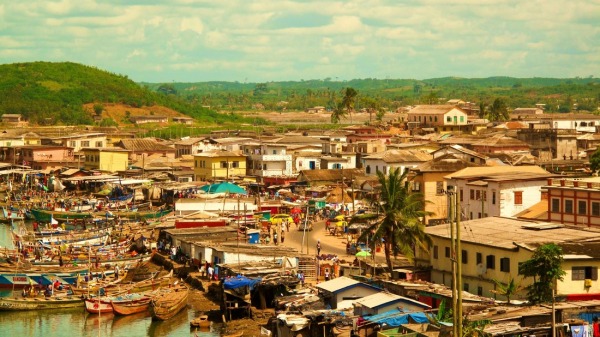Warnings & Dangers in Ghana

OVERALL RISK : MEDIUM
Traveling in Ghana as a whole can be quite safe if you follow specific security measures and monitor food and drink in this country. Exclusive remedies are also needed to protect against malaria and other local diseases.

TRANSPORT & TAXIS RISK : MEDIUM
Public transport in Ghana is not very safe and should be avoided. Use your car or taxi to get around. Taxis are quite reliable but make sure you are using a licensed service, and the driver has turned on the taximeter.

PICKPOCKETS RISK : MEDIUM
There are many pickpockets in the country, and they should beware. Be careful with those who offer or ask for help - this is usually a distraction to get into your pocket. Always watch your pockets.

NATURAL DISASTERS RISK : MEDIUM
Ghana is most exposed to risks from floods and droughts, particularly in the Northern Savannah belt. There are also risks related to coastal hazards, including storm surges and coastal erosion as well as landslides, earthquakes, pest infestations, and wildfires.

MUGGING RISK : LOW
Armed robberies and attacks in Ghana are rare. And tourists are not the target of such crimes if they occur. Avoid walking at night in dimly lit and remote places from the city center and you will be safe.

TERRORISM RISK : LOW
The risk of terrorism is not very high in Ghana. However, conflicts with border states are possible. Study the political situation in your country before you travel here and take appropriate security measures.

SCAMS RISK : MEDIUM
In Ghana, fraud is widespread when people pretend to be government officials, and they can demand your documents. And then they can blackmail that they will be returned to you only for a bribe. Be careful and pay attention to the papers of such people. Also, use only licensed taxis and withdraw money from ATMs at banks.

WOMEN TRAVELERS RISK : MEDIUM
Women traveling to Ghana alone should be prudent. They often become the target of robbers and pickpockets. Keep track of your belongings and surroundings; don’t carry a lot of jewelry and cash. Wear modest clothes, and do not attract unwanted attention to your behavior.
How Safe Is Ghana for Tourists?
The security level in Ghana remains average.
In the country, there are problems with all types of thefts, housebreaking, and car theft.
Be aware that chloroquine-resistant malaria is widespread, and you must take sufficient malaria protection, including mosquito avoidance, mosquito repellents, and chemical prophylaxis.
Yellow fever vaccination is required for entry into the country.
There is a very high risk of meningitis in the northern third of Ghana, which is a part of the Meningitis belt of Africa.
Because of the tropical climate near the coast, travelers will need to stay hydrated.
Bottled water is available everywhere.
Be careful with food in restaurants and cafés; it does not always meet international standards.
Carry your medicine in your first-aid kit for your stomach.
For the latest traveler’s health information about Ghana, including advisories and recommendations, visit the Centers for Disease Control and Prevention destination Ghana website.
Sometimes opportunistic thieves may target lone women travelers, so keep your belongings secure and be aware of our surroundings.
Ghana is a Christian country, where the locals observe conservative standards of dress and behavior.
Take sensible precautions. Avoid carrying large sums of money or valuables, use a hotel safe whenever possible, and be particularly vigilant when withdrawing cash from ATMs.
Do I Need a Visa to Visit Ghana?
Visitors to Ghana must obtain a visa from one of the Ghanaian diplomatic missions unless they come from one of the countries or territories that are either visa-exempt or whose citizens may obtain a visa on arrival. Citizens of several countries and territories are not required to obtain a visa for entry to Ghana for visits up to 90 days.
Which Currency Is Used in Ghana?
The Ghanaian cedi (currency sign: GH₵; currency code: GHS) is the unit of currency of Ghana. It is the fourth historical and only current legal tender in the Republic of Ghana. One cedi is divided into one hundred pesewas (Gp).
How's the Weather like in Ghana?
The best times to visit Ghana for ideal weather are mid-November to mid-March. The average temperatures in Ghana vary very little and the weather feels hot all year with a fair chance of precipitation about half of the year.
What Do I Need to Know about Airports in Ghana?
In Ghana, there are several airports. The main and biggest is Kotoka International Airport – an international airport in Accra, the capital of Ghana.
Should I Get Travel Insurance for My Travels?
Just like anywhere else, the travel insurance policy is a must when visiting a foreign country. Make sure you got it before starting your journey, the customs officer may ask for it.
What Are Some Things to Do in Ghana?
Ghana is a country in West Africa on the coast of the Gulf of Guinea, which is famous for its fauna, ancient forts and secluded beaches, for example in the resort of Busua. The coastal cities of Elmina and Cape Coast are popular with tourists due to the sanctuaries called Puban, colonial buildings and museums opened in castles, the exposition of which is dedicated to the slave trade. To the north of Cape Coast is the huge Kakum National Park, where you can take a walk along the bridge between the crowns of tropical trees.
Is the Water in Ghana Safe to Drink?
Except for localized pollution engineered by illegal mining and other nuisance perpetuated by indigents, the quality of water in Ghana is generally better. Tap water in Ghana is not safe for drinking.
Is Uber Safe in Ghana?
Uber service is available in Ghana. The fare will depend on the time of day and distance. The cost is deducted immediately from the credit card.

